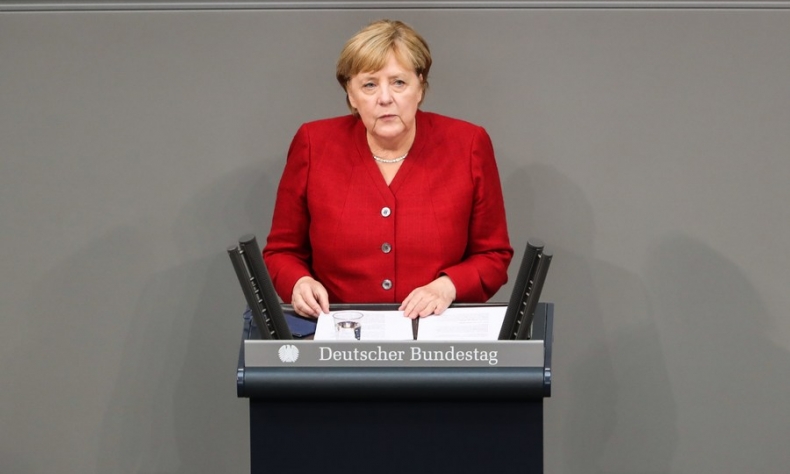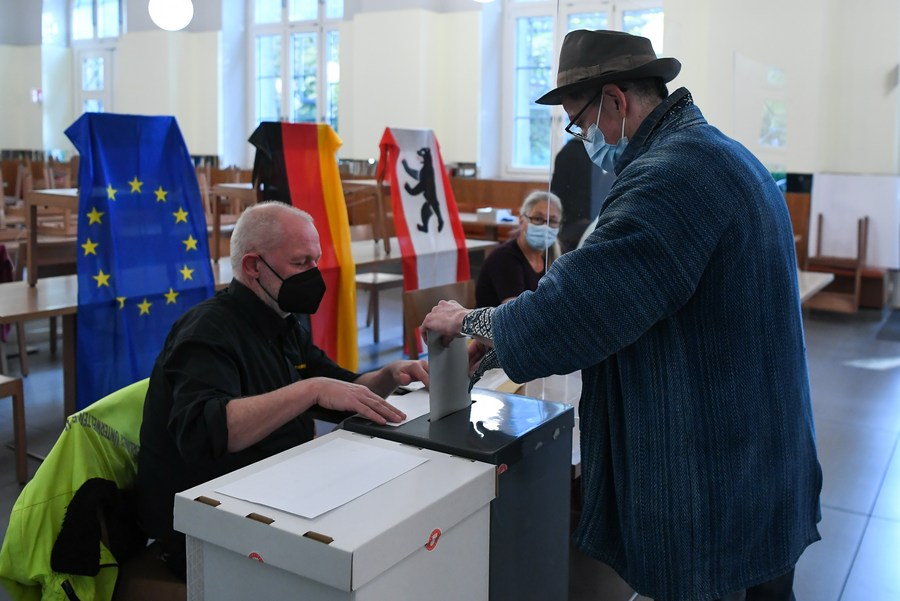Germany After Merkel

The next German government, irrespective of the political colors it will combine, ought to be characterized by a determination to draw on Merkel’s legacy and adapt to the changing environment.
If there is a single world describing Angela Merkel’s stay in power from 2005 until 2021, it would be “stability.” While strengthening Germany’s economic power across the globe, the Chancellor exhibited a remarkable ability to reach compromises, preserve balance and achieve tangible results. Her statesmanship was evident on multifaceted fronts, including on the evolution of Sino-German relations which have shown steady progress.
The departure of Merkel from politics is expected to bring a less personified approach in the German political arena. The priority of the new chancellor will thus be to ensure that stability will be continuously interwoven into Germany’s development, both domestically and internationally. The result of the federal election of Sept. 26 makes such a mission difficult but doable. Six parties will be represented in the Bundestag, namely the Social-Democratic Party (SPD), the Union composed of the Christian Democratic Union (CDU) and the Christian Social Union (CSU), the Greens, the Liberals (FDP), the Alternative for Germany (AfD), and The Left (Die Linke).
The SPD narrowly won the election garnering 25.7% of the vote, 1.6% higher than that of the Union. Although a coalition government will be required, the leader of the former, Olaf Scholz, has more chances to become the new chancellor than the leader of the latter, Armin Laschet. The Union won 24.1% of the vote, 8.9% lower in comparison to the 2017 federal election. This was the Union’s worst performance since 1949.

There has been no clear shift towards the center-left political spectrum. The SPD increased its percentage of the vote by 5.2%, but the leftist Die Linke displayed a decline of 4.3% when compared to four years ago. Armin Laschet’s task had been tough from the very first beginning as he could not escape the shadow of Angela Merkel. This led many voters to select other parties.
Consultations are expected to be led by Olaf Scholz for the formation of a coalition government in the next weeks, perhaps months. Two smaller parties, the Greens and the Liberals could possibly become key political players. The Greens won a 14.8% of the vote, 5.9% higher than in 2017. However, their performance was lower than pre-election polls, and did not meet the high expectations. For their part, the Liberals managed to slightly increase their share of the vote by 0.8% and received 11.5% of the vote. In the aftermath of the 2017 federal election, the Greens and the Liberals could not agree to co-govern with the Union. However, both parties are currently discussing pre-conditions to cooperate with the SPD. They both constitute a significant political force in the Bundestag as their total number of representatives (210) is higher than those of the SPD (206) and the Union (196). The bargain among the three parties will define the outcome.
Scenarios for a grand coalition between the SPD and the Union are a last resort to avoid a new election. Theoretically, the Union can also explore to join forces with the Greens and the Liberals and revert the 2017 political failure. Arguably, it is wiser for the conservative party to stay in the opposition, after so many years in power, and calmly discuss its future political orientation.
The next German government, irrespective of the political colors it will combine, ought to be characterized by a determination to draw on Merkel’s legacy and adapt to the changing environment. Energy transition, less inequality and the empowerment of innovation domestically in parallel with the transformation of the “strategic autonomy” concept from words into deeds at the EU level require leadership and a clear governmental agenda. Political consultations in Germany are thus critical to guarantee consensus for difficult decisions and legislative rounds in the Bundestag.
George N. Tzogopoulos is a columnist with China.org.cn.
 Facebook
Facebook
 Twitter
Twitter
 Linkedin
Linkedin
 Google +
Google +










